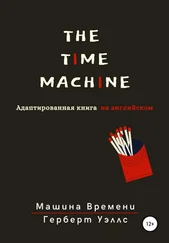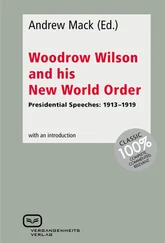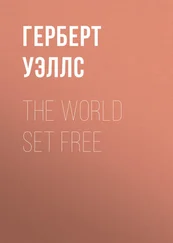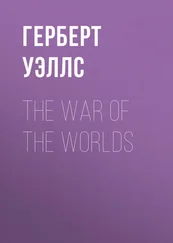Герберт Уэллс - The New World Order
Здесь есть возможность читать онлайн «Герберт Уэллс - The New World Order» весь текст электронной книги совершенно бесплатно (целиком полную версию без сокращений). В некоторых случаях можно слушать аудио, скачать через торрент в формате fb2 и присутствует краткое содержание. Год выпуска: 1940, Жанр: Политика, Публицистика, на английском языке. Описание произведения, (предисловие) а так же отзывы посетителей доступны на портале библиотеки ЛибКат.
- Название:The New World Order
- Автор:
- Жанр:
- Год:1940
- ISBN:нет данных
- Рейтинг книги:4 / 5. Голосов: 1
-
Избранное:Добавить в избранное
- Отзывы:
-
Ваша оценка:
- 80
- 1
- 2
- 3
- 4
- 5
The New World Order: краткое содержание, описание и аннотация
Предлагаем к чтению аннотацию, описание, краткое содержание или предисловие (зависит от того, что написал сам автор книги «The New World Order»). Если вы не нашли необходимую информацию о книге — напишите в комментариях, мы постараемся отыскать её.
The New World Order — читать онлайн бесплатно полную книгу (весь текст) целиком
Ниже представлен текст книги, разбитый по страницам. Система сохранения места последней прочитанной страницы, позволяет с удобством читать онлайн бесплатно книгу «The New World Order», без необходимости каждый раз заново искать на чём Вы остановились. Поставьте закладку, и сможете в любой момент перейти на страницу, на которой закончили чтение.
Интервал:
Закладка:
This book is a discussion of guiding principles and not of the endless specific problems of adjustment that arise on the way to a world realisation of collective unity. I will merely glance at that old idea of Napoleon the Third's, the Latin Union, at the possibility of a situation in Spanish and Portuguese South America parallel to that overlap of the Monroe Doctrine and the European motherlands which already exists in practice in the case of Canada, nor will I expatiate upon the manifold possibilities of sincere application of the Declaration of the Rights of Man to India and Africa-and particularly to those parts of the world in which more or less black peoples are awakening to the realities of racial discrimination and oppression.
I will utter a passing warning against any Machiavellian treatment of the problem of Northern and Eastern Asia, into which the British may be led by their constitutional Russophobia. The Soviet collectivism, especially if presently it becomes liberalised and more efficient through a recovery from its present obsession by Stalin, may spread very effectively across Central Asia and China. To anyone nourished mentally upon the ideas of an unending competition of Powers for ascendancy for ever and ever, an alliance with Japan, as truculent and militarised a Japan as possible, will seem the most natural response in the world. But to anyone who has grasped the reality of the present situation of mankind and the urgent desirableness of world collectivisation, this immense unification will be something to welcome, criticise and assist.
The old bugbear of Russia's "designs upon India" may also play its part in distorting the Asiatic situation for many people. Yet a hundred years of mingled neglect, exploitation and occasional outbreaks of genuine helpfulness should have taught the British that the ultimate fate of India's hundreds of millions rests now upon no conquering ruler but wholly and solely upon the ability of the Indian peoples to co-operate in world collectivisation. They may learn much by way of precept and example from Russia and from the English-speaking world, but the days for mere revolt or for relief by a change of masters have passed. India has to work out for itself, with its own abundant brains, its escape from chaos and its own manner of participation in the struggle for a world order, starting from the British raj as a datum line. No outside power can work that out for the Indian peoples, nor force them to do it if they have no will for it.
But I will not wander further among these ever-changing problems and possibilities. They are, so to speak, wayside eventualities and opportunities. Immense though some of them are they remain secondary. Every year or so now the shifting channels of politics need to be recharted. The activities and responses of the sane man in any particular country and at any particular time will be determined always by the overruling conception of a secular movement towards a single world order. That will be the underlying permanent objective of all his political life.
There is, however, another line of world consolidation to which attention must be drawn before we conclude this section, and is what we may call ad hoc international systems. The essential idea of ad hoc internationalism is admirably set forth in Leonard Woolf's International Government, a classic which was published in 1916 and still makes profitable reading.
The typical ad hoc organisation is the Postal Union, which David Lubin, that brilliant neglected thinker, would have had extended until it controlled shipping and equalised freights throughout the world. He based his ideas upon his practical experience of the mail order business from which he derived his very considerable fortune. From that problem of freight adjustment he passed to the idea of a controlled survey of world production week by week and month by month, so that a shortage here or a glut there could be foreseen and remedied in time. He realised the idea in the form of the International Institute of Agriculture at Rome, which in its heyday made treaties like an independent sovereign power for the supply of returns from nearly every government upon earth. The war of 1914 and Lubin's death in 1919 checked the development of this admirable and most inspiring experiment in ad hoc internationalism. Its history is surely something that should be made part of the compulsory education of every statesman and publicist. Yet never in my life have I met a professional politician who knew anything whatever or wanted to know anything about it. It didn't get votes; it seemed difficult to tax it; what was the good of it?
Another ad hoc organisation which might be capable of a considerable extension of its functions is the Elder Brethren of Trinity House, who control the lighthouses and charting of the seas throughout the world. But it would need a very considerable revision and extension of Mr Woolf's book and, in spite of the war stresses that have delayed and in some cases reversed their development, it would be quite beyond our present scope, to bring up to date the lengthening tale of ad hoc international networks, ranging from international business cartels, scientific and technical organisations, white-slave-trade suppression and international police co-operation, to health services and religious missions. Just as I have suggested that the United States and Great Britain may become complete socialisms unawares, so it is a not altogether impossible dream that the world may discover to its great surprise that it is already practically a cosmopolis, through the extension and interweaving of these ad hoc co-operations. At any rate we have this very powerful collateral process going on side by side with the more definite political schemes we have discussed.
Surveying the possibilities of these various attacks upon the complicated and intricate obstacles that stand between us and a new and more hopeful world order, one realises both the reasons for hope in that great possibility and the absurdity of over-confidence. We are all like soldiers upon a vast battlefield; we cannot be sure of the trend of things; we may be elated when disillusionment is rushing headlong upon us; we may be on the verge of despair, not knowing that our antagonists are already in collapse. My own reactions vary between an almost mystical faith in the ultimate triumph of human reason and good-will, and moods of stoical determination to carry on to the end in the face of what looks like inevitable disaster. There are quantitative factors in the outlook for which there are no data; there are elements of time and opportunity beyond any estimating. Every one of these activities we have been canvassing tends to delay the drift to destruction and provides a foothold for a further counter-offensive against the adversary.
In the companion predecessor to this book, The Fate of Homo sapiens, I tried to drive home the fact that our species has no more reason to believe it can escape defeat and extinction, than any other organism that plays or has played its part in the drama of life. I tried to make clear how precarious is our present situation, and how urgent it is that we should make a strenuous effort at adjustment now. Only a little while ago it seemed as though that was an appeal to a deaf and blind world, invincibly set in its habitual ways even if they led plainly to destruction. I went into the question whether this inclination towards pessimism reflected a mood or phase in myself, and I threw out a qualifying suggestion or so; but for my own part I could not find any serious reason to believe that the mental effort that was clearly necessary if man was to escape the fate that marched upon him would ever be made. His conservative resistances, his apathy, seemed incurable.
Now suddenly everywhere one meets with alarmed and open and enquiring minds. So far the tremendous dislocations of the present war have been immensely beneficial in stripping off what seemed to be quite invincible illusions of security only a year ago. I never expected to live to see the world with its eyes as widely open as they are to-day. The world has never been so awake. Little may come of it, much may come of it. We do not know. Life would amount to nothing at all if we did.
Читать дальшеИнтервал:
Закладка:
Похожие книги на «The New World Order»
Представляем Вашему вниманию похожие книги на «The New World Order» списком для выбора. Мы отобрали схожую по названию и смыслу литературу в надежде предоставить читателям больше вариантов отыскать новые, интересные, ещё непрочитанные произведения.
Обсуждение, отзывы о книге «The New World Order» и просто собственные мнения читателей. Оставьте ваши комментарии, напишите, что Вы думаете о произведении, его смысле или главных героях. Укажите что конкретно понравилось, а что нет, и почему Вы так считаете.
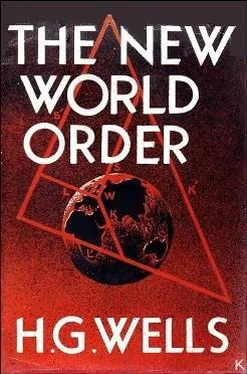
![Герберт Уэллс - The War of the Worlds [С англо-русским словарем]](/books/26611/gerbert-uells-the-war-of-the-worlds-s-anglo-thumb.webp)

